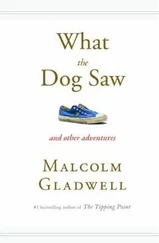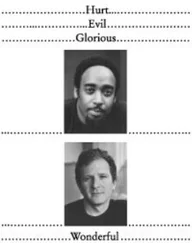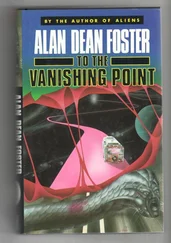Malcolm Gladwell - The Tipping Point
Здесь есть возможность читать онлайн «Malcolm Gladwell - The Tipping Point» весь текст электронной книги совершенно бесплатно (целиком полную версию без сокращений). В некоторых случаях можно слушать аудио, скачать через торрент в формате fb2 и присутствует краткое содержание. Город: Boston, New York, London, Год выпуска: 2000, ISBN: 2000, Издательство: LITTLE, BROWN AND COMPANY, Жанр: Культурология, Психология, на английском языке. Описание произведения, (предисловие) а так же отзывы посетителей доступны на портале библиотеки ЛибКат.
- Название:The Tipping Point
- Автор:
- Издательство:LITTLE, BROWN AND COMPANY
- Жанр:
- Год:2000
- Город:Boston, New York, London
- ISBN:0-316-31696-2
- Рейтинг книги:3 / 5. Голосов: 1
-
Избранное:Добавить в избранное
- Отзывы:
-
Ваша оценка:
- 60
- 1
- 2
- 3
- 4
- 5
The Tipping Point: краткое содержание, описание и аннотация
Предлагаем к чтению аннотацию, описание, краткое содержание или предисловие (зависит от того, что написал сам автор книги «The Tipping Point»). Если вы не нашли необходимую информацию о книге — напишите в комментариях, мы постараемся отыскать её.
The Tipping Point — читать онлайн бесплатно полную книгу (весь текст) целиком
Ниже представлен текст книги, разбитый по страницам. Система сохранения места последней прочитанной страницы, позволяет с удобством читать онлайн бесплатно книгу «The Tipping Point», без необходимости каждый раз заново искать на чём Вы остановились. Поставьте закладку, и сможете в любой момент перейти на страницу, на которой закончили чтение.
Интервал:
Закладка:
"I love my clients, okay? I'll bend over backwards for them," Gau said. "I call my clients my family. I tell my clients, I've got two families. I've got my wife and my kids and I've got you." Gau talks quickly, but in fits and starts. He's always revving up and gearing down. Sometimes when he is making an aside be will rev up even further, as if to put in his own verbal parentheses. He asks lots of rhetorical questions. "I love my job. I love my job. I'm a workaholic. I get here at six and seven in the morning. I get out at nine at night. I manage a lot of money. I'm one of the top producers in the nation. But I don't tell my clients that. I'm not here because of that. I'm here to help people. I love helping people. I don't have to work anymore. I'm financially independent. So why am I here working these long hours? Because I love helping people. I love people. It's called a relationship."
Gau's pitch is that his firm offers clients a level of service and expertise they'll have difficulty getting anywhere else. Across the hall from his office is a law firm, affiliated with Kavesh and Gau, that handles wills and living trusts and all other legal matters related to financial planning. Gau has insurance specialists to handle insurance needs and stockbrokers to handle investments and retirement Specialists for older clients. His arguments are rational and coherent. Moine has put together, in cooperation with Gau, what he calls a financial planner's script book. Moine's argument is that what separates a great salesman from an average one is the number and quality of answers they have to the objections commonly raised by potential clients. He sat down with Gau, then, and taperecorded all of Gau's answers and wrote them up in a book. Moine and Gau calculate that there are about twenty questions or statements that a planner needs to be prepare for. For example: "I can do it myself" is one, and for that the script book lists fifty potential answers. "Aren't you concerned about making the wrong moves and having no one there to help you?" for instance. Or "I'm sure you do a good job at money management. However, did you know most wives outlive their husbands? If something should happen to you, would she be able to handle everything by herself?"
I can imagine someone buying this script book and memorizing each of these potential responses. I can also imagine that same person, over time, getting familiar enough with the material that he begins to judge, very well, what kinds of responses work best with what kinds of people. If you transcribed that person's interactions with his clients, he would sound just like Tom Gau because he would be using all of Tom Gau's words. According to the standard ways by which we measure persuasiveness — by the logic and appropriateness of the persuader's arguments — that should make the people using the script book every bit as persuasive as Tom Gau. But is that really true? What was interesting about Gau is the extent to which he seemed to be persuasive in a way quite different from the content of his words. He seems to have some kind of indefinable trait, something powerful and contagious and irresistible that goes beyond what comes out of his mouth that makes people who meet him want to agree with him. It's energy. It's enthusiasm. It's charm. It's likeability. It's all those things and yet something more. At one point I asked him whether he was happy, and he fairly bounced off his chair.
"Very. I'm probably the most optimistic person you could ever imagine. You take the most optimistic person you know and take it to the hundredth power, that's me. Because you know what, the power of positive thinking will overcome so many things. There are so many people who are negative. Someone will say you can't do that. And I'll say, what do you mean I can't do that? We moved up to Ashland, Oregon, a little over five years ago. We found a house we really liked. It had been on the market for some time and it was a bit expensive. So I said to my wife, you know what, I'm going to make a ridiculously low offer. And she said they're never going to take that. I said, maybe not. What have we got to lose? The worst thing they can say is no. I'm not going to insult them. I'm going to give them my little pitch of here's why I'm doing this. I'm going to make it clear what I'm suggesting. And you know what? They accepted the offer." As Gau told me this story, I had no difficulty at all seeing him back in Ashland, somehow convincing the seller to part with his beautiful home for a ridiculous price. "Gosh darn it," Gau said, "If you don't try, you'll never succeed."
The question of what makes someone — or something — persuasive is a lot less straightforward than it seems. We know it when we see it. But just what "it" is not always obvious. Consider the following two examples, both drawn from the psychological literature. The first is an experiment that took place during the 1984 presidential campaign between Ronald Reagan and Walter Mondale. For eight days before the election, a group of psychologists led by Brian Mullen of Syracuse University videotaped the three national nightly news programs, which then, as now, were anchored by Peter Jennings at ABC, Tom Brokaw at NBC, and Dan Rather at CBS. Mullen examined the tapes and excerpted all references to the candidates, until he had 37 separate segments, each roughly two and a half seconds long. Those segments were then shown, with the sound turned off, to a group of randomly chosen people, who were asked to rate the facial expressions of each newscaster in each segment. The subjects had no idea what kind of experiment they were involved with, or what the newscasters were talking about. They were simply asked to score the emotional content of the expressions of these three men on a 21-point scale, with the lowest being "extremely negative" and the highest point on the scale "extremely positive."
The results were fascinating. Dan Rather scored 10.46 — which translate to an almost perfectly neutral expression — when he talked about Mondale, and 10.37 when he talked about Reagan. He looked the same when he talked about the Republican as he did when he talked about the Democrat. The same was true for Brokaw, who scored 11.21 for Mondale and 11.50 for Reagan. But Peter Jennings of ABC was much different. For Mondale, he scored 13.38. But when he talked about Reagan, his face lit up so much he scored 17.44. Mullen and his colleagues went out of their way to try to come up with an innocent explanation for this. Could it be, for example, that Jennings is just more expressive in general than his colleagues? The answer seemed to be no. The subjects were also shown control segments of the three newscasters, as they talked about unequivocally happy or sad subjects (the funeral of Indira Gandhi; a breakthrough in treating a congenital disease). But Jennings didn't score any higher on the happy subjects or lower on the sad subjects than his counterparts. In fact, if anything, he seemed to be the least expressive of the three. It also isn't the case that Jennings is simply someone who has a happy expression on his face all the time. Again, the opposite seemed to be true. On the "happy" segments inserted for comparison purposes, he scored 14.13, which was substantially lower than both Rather and Brokaw. The only possible conclusion, according to the study, is that Jennings exhibited a "significant and noticeable bias in facial expression" toward Reagan.
Now here is where the study gets interesting. Mullen and his colleagues then called up people in a number of cities around the country who regularly watch the evening network news and asked them who they voted for. In every case, those who watched ABC voted for Reagan in far greater numbers than those who watched CBS or NBC. In Cleveland, for example, 75 percent of ABC watchers voted Republican, versus 61.9 percent of CBS or NBC viewers. In Williamstown, Massachusetts, ABC viewers were 71.4 percent for Reagan versus 50 percent for the other two networks; in Erie, Pennsylvania, the difference was 73.7 percent to 50 percent. The subtle pro-Reagan bias in Jennings's face seems to have influenced the voting behavior of ABC viewers.
Читать дальшеИнтервал:
Закладка:
Похожие книги на «The Tipping Point»
Представляем Вашему вниманию похожие книги на «The Tipping Point» списком для выбора. Мы отобрали схожую по названию и смыслу литературу в надежде предоставить читателям больше вариантов отыскать новые, интересные, ещё непрочитанные произведения.
Обсуждение, отзывы о книге «The Tipping Point» и просто собственные мнения читателей. Оставьте ваши комментарии, напишите, что Вы думаете о произведении, его смысле или главных героях. Укажите что конкретно понравилось, а что нет, и почему Вы так считаете.










